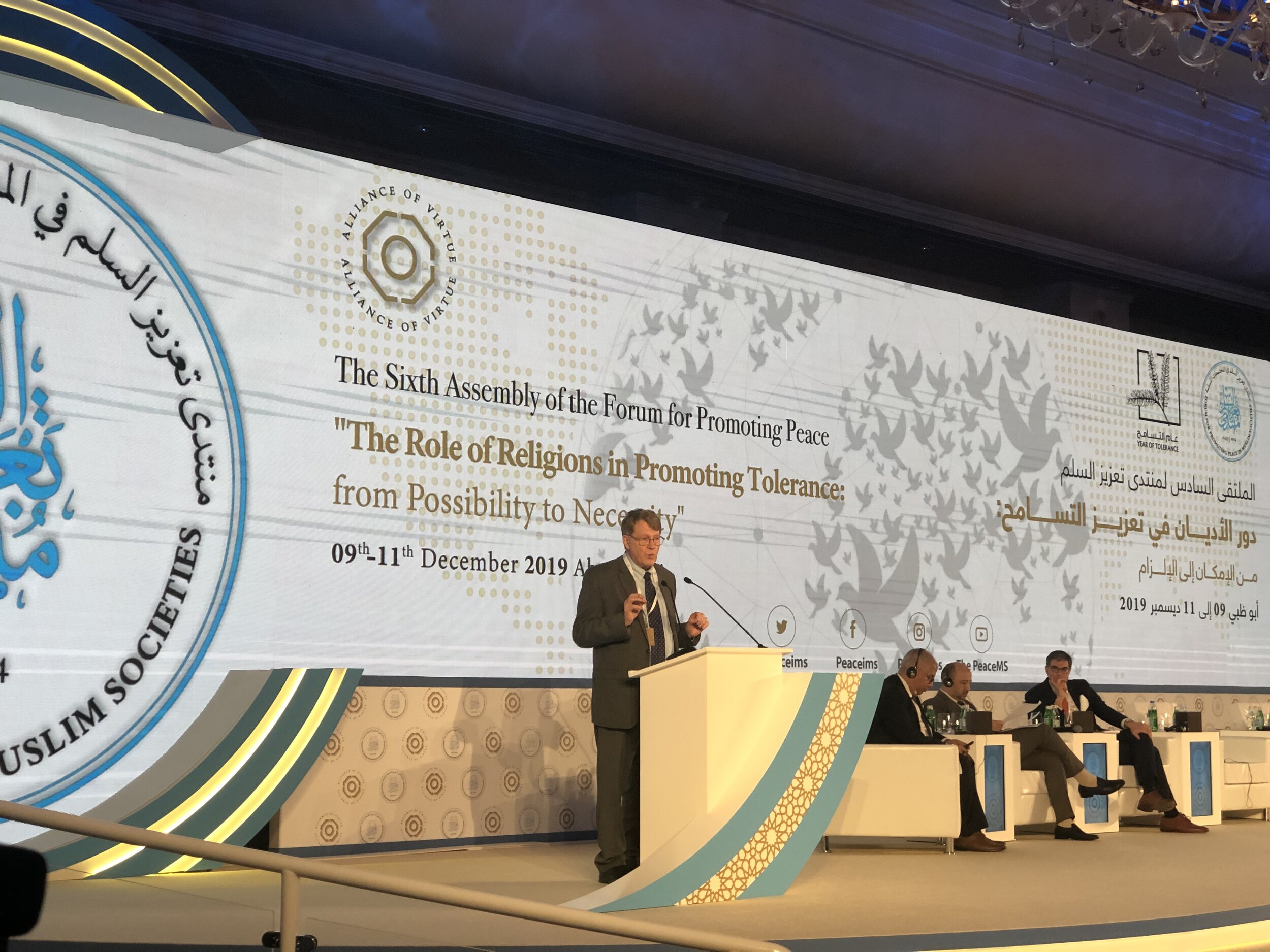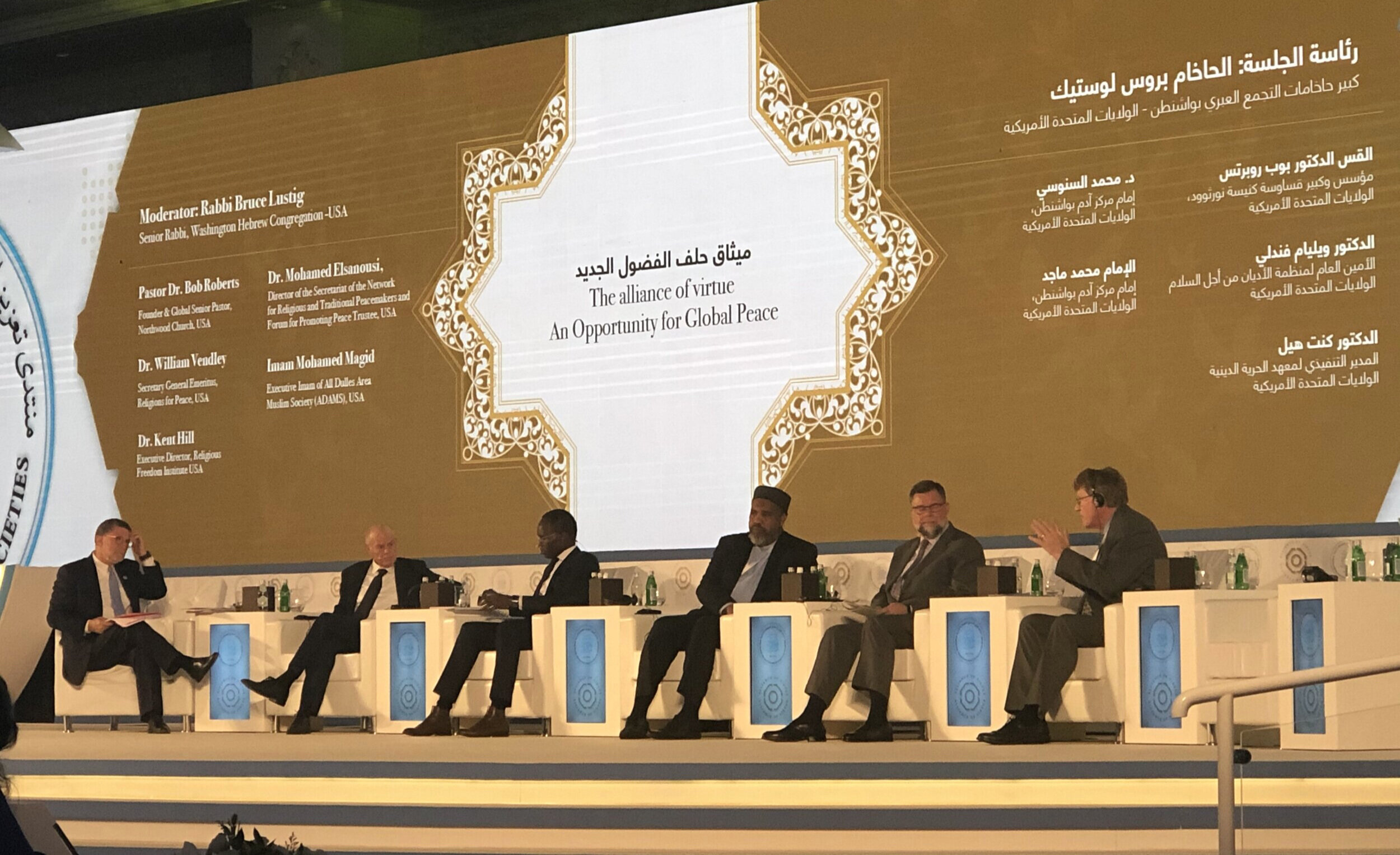Kent Hill, RFI Senior Fellow for Eurasia, Middle East, and Islam, recently addressed the Sixth Assembly of the Forum for Promoting Peace in Abu Dhabi, during which Hill spoke forcefully about the value of religious freedom for society:
“Any abridgment of religious freedom strikes simultaneously at the heart of human flourishing and at that which preserves and ennobles human society, for it is empirically demonstrable that there is a direct and positive correlation between the presence of religious freedom in a society and a vast array of societal benefits.”
In a session entitled, “The Charter of the New Alliance of Virtue: An Opportunity for Global Peace,” Hill argued that A Robust Understanding of Tolerance Must be Rooted in Human Dignity, Conscience, and Reason.
Convened December 9-11, the Forum launched the Charter of the New Alliance of Virtue, which builds on a number of initiatives such as the Amman Message (2004), The Marrakesh Declaration (2016), and The Human Fraternity Declaration (2019), which was co-signed in Abu Dhabi by Pope Francis and the Grand Imam of Al-Azhar Ahmad Al-Tayyeb.
Muslim, Christian, and Jewish leaders from around the world, as well as representatives from other faiths, were present for last week’s historic meeting.
In the drafting of the Charter, RFI advocated for and secured the inclusion of robust language on religious freedom and natural rights. The Charter aims to elevate and affirm religious freedom, consistent with the highest obligations of virtue and international law, in order to protect religious communities, beliefs, and practices around the world.
While recognizing the serious theological and ethical differences across religious traditions, the Forum program introducing the Charter of the New Alliance of Virtue summed up well its core foundation: “We are either brethren in our beliefs, or brethren in our shared humanity.”
The hard work ahead is to take these words on paper and translate them into actions so that religious freedom for everyone is protected in law and respected in culture, in societies in the Middle East and beyond.
THE RFI BLOG

Is Egypt’s Government Trying To Take Over Christianity’s Most Important Monastery?

Does Southeast Asia Lead the World in Human Flourishing?

RFI Leads Training Session on Religious Freedom Law and Policy for U.S. Army War College

Oral Argument in Charter School Case Highlights Unconstitutional Motives Behind OK Attorney General’s Establishment Clause Claim

Largest Longitudinal Study of Human Flourishing Ever Shows Religion’s Importance
CORNERSTONE FORUM

Reaffirming Religious Freedom: Bridging U.S. Advocacy and Iraq’s Constitutional Framework

Political Polarization, Same-Sex Marriage and Religious Liberty

Bridging the Gap Between International Efforts and Local Realities: Advancing Religious Freedom in the MENA Region

Challenges to Religious Freedom in Iraq and the Critical Need for Action



